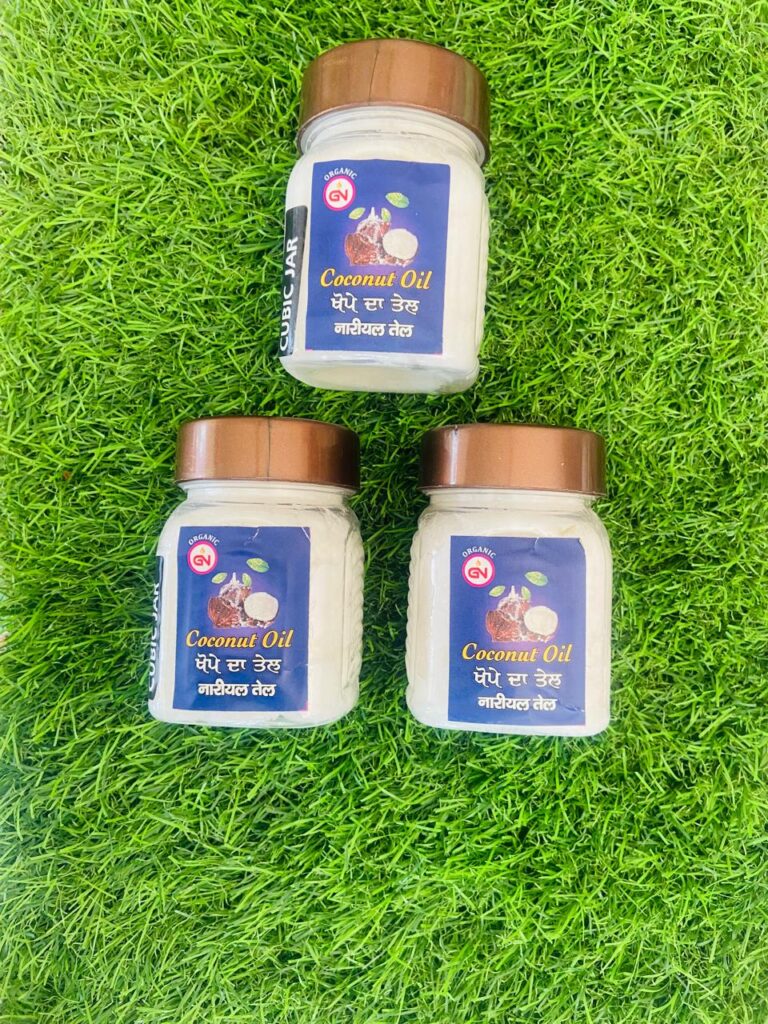In recent years, coconut oil has gained immense popularity, often being hailed as a superfood with numerous health benefits. Celebrity endorsements and diet trends like ketogenic and Paleo have fueled the hype, with claims that this oil can aid in weight loss, strengthen the immune system, and even prevent heart disease. However, nutrition experts remain divided, with only 37% considering it a healthy choice, despite 72% of Americans believing otherwise. Let’s explore the facts behind coconut oil and its role in a balanced diet.
The Composition of Coconut Oil
Coconut oil is 100% fat, with about 80–90% of it being saturated, which makes it solid at room temperature. Its primary fatty acid is lauric acid (47%), followed by myristic and palmitic acids, which have been shown to raise LDL (“bad”) cholesterol levels. While coconut oil contains traces of monounsaturated and polyunsaturated fats, it lacks fiber, cholesterol, and significant amounts of vitamins or minerals. It does include plant sterols that mimic cholesterol and may help block its absorption, though in amounts too small to have a meaningful impact.
Health Benefits and Concerns
Many health claims about coconut oil are based on studies using 100% medium-chain triglycerides (MCTs), which are metabolized differently than the commercial variety. While MCTs are rapidly absorbed and converted into energy—promoting satiety and reducing fat storage—lauric acid is absorbed more slowly and behaves like long-chain fatty acids.
Epidemiological studies of populations in India, the Philippines, and Polynesia suggest lower rates of cardiovascular disease among those consuming whole coconut products rather than the processed extract, along with diets rich in fiber and minimally processed foods.
A meta-analysis of 16 clinical trials found that coconut oil increased both LDL (bad) and HDL (good) cholesterol compared to non-tropical vegetable oils like olive or sunflower oil. The American Heart Association advises against excessive consumption, recommending that saturated fats constitute no more than 6% of daily calories. One tablespoon of this oil provides about 12 grams of saturated fat, nearly reaching this limit.
Uses and Culinary Applications
Despite ongoing debates over its health benefits, many continue to favor coconut oil for its rich flavor and versatility in the kitchen.
- Sautéing: Use a tablespoon of the virgin variety to add a hint of tropical flavor when cooking vegetables.
- Sauces & Curries: Incorporate it into sauces and curries for a creamy texture.
- Baking: Substitute it for butter or shortening in recipes, using about 25% less due to its high fat content.
- Neutral Options: Opt for the refined version if you prefer a less pronounced taste.
Types and Storage Tips
Coconut oil comes in various forms based on its processing method:
- Virgin/Extra Virgin Coconut Oil: Made from fresh coconut meat using dry or wet processing. It has a rich coconut flavor and a smoke point of about 350°F, suitable for baking and light sautéing.
- Refined Coconut Oil: Extracted from dried coconut meat (copra), then deodorized and bleached to remove impurities. It offers a neutral taste and a higher smoke point (400–450°F), ideal for high-heat cooking.
- Partially Hydrogenated Coconut Oil: This process creates trans fats, which should be avoided due to their harmful effects.
Store coconut oil in a cool, dark place in a sealed container. The virgin type can last up to 2–3 years when stored properly, while the refined version typically lasts only a few months.
Beyond the Kitchen: For Skin & Hair
Coconut oil is not limited to culinary uses—it’s widely applied as a natural moisturizer and hair conditioner. Use a small amount directly on the skin for hydration, or massage it into the hair to reduce dryness and frizz. For optimal results, leave coconut oil on for a few minutes or overnight before washing.
The Global Impact
The Philippines leads global production of coconut oil, followed by Indonesia and India, while countries like the U.S. and those in the European Union are major consumers. Whether used in traditional cooking, beauty treatments, or modern diets, coconut oil remains a significant global commodity.
A Traditional Alternative: Mustard Oil
While coconut oil has become a modern favorite, another oil with a rich cultural heritage is mustard oil. Used for centuries in South Asian cuisine and traditional medicine, mustard oil offers a distinct, pungent flavor and potential health benefits such as cardiovascular support and anti-inflammatory properties. However, concerns over its erucic acid content have led to regulatory restrictions in some regions. Exploring both options can help you decide which oil best fits your culinary and wellness needs.
Final Thoughts
While coconut oil offers unique flavors and potential health benefits, its high saturated fat content means it should be consumed in moderation. It works best as part of a balanced diet alongside healthier unsaturated fats such as olive or avocado oil. Whether enjoyed in cooking or as a natural beauty remedy, coconut oil continues to be a versatile and intriguing ingredient in kitchens and homes worldwide.

